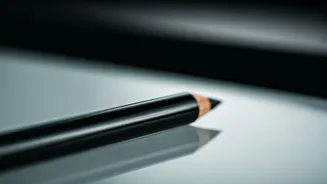The Legal Challenge
The legendary actors, Amitabh and Jaya Bachchan, have approached the Delhi High Court seeking protection of their personality rights. The core of their petition
addresses the unauthorized and potentially harmful use of their images and voices through artificial intelligence and deepfake technology. This legal pursuit signifies a proactive measure to counter the increasing prevalence of digitally manipulated content that can damage reputations and mislead the public. Their legal team is likely to present evidence of potential misuse and the need for stringent measures to prevent future violations, setting a precedent for others in the entertainment industry.
AI's New Threat
Artificial intelligence has brought about numerous advancements, but it has also introduced novel challenges. One significant issue is the ability to create highly realistic deepfakes – videos and images that convincingly depict individuals doing or saying things they never did. This technology poses a serious threat to public figures, potentially causing reputational damage, spreading misinformation, and even leading to financial or personal harm. The Bachchans' legal action underscores the urgent need for legal frameworks and regulations to address the misuse of AI in content creation, protecting individuals from these emerging digital risks.
Deepfake Concerns Emerge
Deepfakes are digital creations that use AI to alter existing images or videos, or to fabricate entirely new ones. These can be incredibly convincing, making it difficult to distinguish between reality and manipulation. The rise of deepfakes has led to widespread concern about their potential to mislead audiences, spread propaganda, and cause significant harm to individuals' personal and professional lives. High-profile figures like the Bachchans are particularly vulnerable. Their legal move highlights the gravity of this threat and the importance of proactively seeking legal safeguards to combat these technological abuses.
Personality Rights Under Fire
The core of the Bachchans' legal argument is the protection of their personality rights. These rights encompass the exclusive control over the use of one's name, image, voice, and likeness for commercial or other purposes. The proliferation of AI-generated content has eroded the boundaries of these rights, allowing for unauthorized and potentially harmful use of an individual's identity. The legal battle by the Bachchans aims to establish stronger legal precedents to protect these rights in the digital age. This includes seeking injunctions against the creation and distribution of deepfakes and other AI-generated content that violates their personal and professional rights.
Impact on Industry
The Delhi High Court case involving the Bachchans has broader implications for the Indian entertainment industry and the public at large. It draws attention to the need for clear guidelines and robust enforcement mechanisms to protect against the misuse of AI in media. This could lead to increased awareness among other public figures and celebrities, encouraging them to also seek legal protection. Furthermore, it might catalyze discussions within the government and legal communities about formulating specific laws and regulations regarding AI-generated content to ensure responsible development and prevent malicious applications.
Looking Ahead: Safeguards
As AI technology continues to evolve, the need for comprehensive safeguards is more pressing than ever. This includes developing new legal frameworks, educating the public about the dangers of deepfakes, and promoting media literacy. The legal action initiated by the Bachchans is an important step in this direction. It underscores the critical role of the courts in adapting to technological advancements and ensuring that individuals' rights are protected in the digital realm. It also highlights the importance of vigilance and proactive measures to counter the threats posed by AI and deepfakes.





















